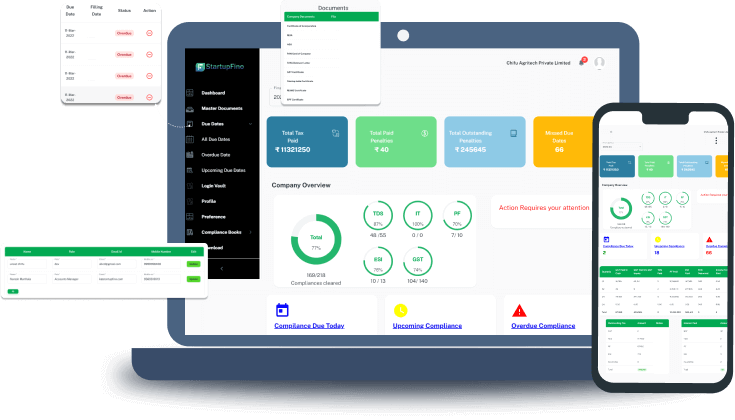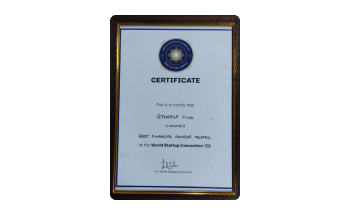ISI certification, which stands for the Indian Standards Institute, is a certification scheme which is operated by the BIS, short for Bureau of Indian Standards. This scheme is there to ensure that products in the Indian market comply with the standards that the BIS sets and also meets safety requirements.
Now, when a product obtains the ISI Mark Certification, it signifies that it has met these rigorous standards. This certification is not optional for certain products; in fact, there are over 346 products that fall into this category. Without the ISI Certification, manufacturers are prohibited from selling or producing these items in India.
For any manufacturer or importer seeking to register their product with the ISI Scheme of BIS, there is a series of predefined procedures that must be followed. These procedures include product testing, application submission, inspection and thorough application review by the department.
Key Objectives of ISI Certification
Some of the major objectives behind ISI Mark Certification include:
- Enhancing Customer Satisfaction and Business Reputation:
ISI Mark Certification aims to boost customer satisfaction by ensuring the quality and safety of products. This, in turn, enhances the overall reputation and goodwill of a business.
- Minimising Resource Wastage and Production Costs:
The certification process focuses on reducing the wastage of resources which then leads to a more efficient and profitable production process.
- Ensuring Delivery of High-Quality Products:
ISI Mark Certification provides assurance that products meet high-quality standards, assuring consumers of their safety and reliability.
- Facilitating Business Growth:
Achieving ISI Mark Certification can open doors to better growth prospects, as it attests to a company's commitment to quality and safety.
- Guaranteeing Product Safety and Quality:
ISI Mark Certification serves as a guarantee of product safety and quality, providing peace of mind to both businesses and consumers.
- Lessening Product Rejections:
By adhering to ISI standards, businesses can significantly reduce the likelihood of product rejections, saving time and resources.
Major Considerations for ISI Mark Certification
There are certain important points to consider for ISI Mark Certification in India which must be kept in mind while applying for the mark. These include:
- Quality Complaint Resolution Process:
In case of subpar product quality, it is essential to know that you have the right to file a complaint with the Bureau of Indian Standards (BIS).
- Examination Duration:
Be aware that the BIS Officer will typically take approximately three months to thoroughly assess and investigate any complaints lodged against a manufacturer.
- Inclusion of ISI Mark Certification Details:
To comply with ISI Mark Certification requirements, ensure that all invoices issued by the seller contain the necessary details related to the ISI Mark Certification.
- Ongoing Manufacturer Surveillance:
It's important to understand that the BIS maintains regular surveillance of all manufacturers, ensuring adherence to the prescribed standards and guidelines for ISI Certification.
Who Grants ISI Certification in India?
In India, the authority responsible for granting ISI Mark Certification is the Bureau of Indian Standards (BIS), the country's National Standard Body. When an application for an ISI Certificate is submitted, the BIS officer initiates a preliminary examination and conducts factory premise verification. This process is essential to ensure that the product not only conforms to Indian Standards but is also safe for use, without posing any health hazards to citizens.
Advantages of Obtaining ISI Certification in India
ISI mark certification has a number of advantages that entrepreneurs can avail after successful registration of the certification in India. These advantages include:
- Market Advantages:
Obtaining ISI Mark Certification offers substantial benefits in the marketplace. Certified products enjoy a distinct advantage over uncertified counterparts, leading to uninterrupted production and enhanced consumer trust. ISI Mark Certification attests that your products meet rigorous quality and safety standards.
- Increased Market Access:
Certified products gain access to a wider market due to their demonstrated high quality and compliance with safety standards. Consumers place greater trust in products bearing the ISI mark, which, in turn, expands your market reach.
- Competitive Edge:
ISI Mark Certification is a symbol of product excellence and safety. Manufacturers holding this certification gain a competitive advantage, as consumers consistently prefer certified products for their assurance of quality and safety.
ISI Certification Product List
There are certain products that need ISI mark certification compulsorily in the country. Given below is the list of the products that come under ISI Mark Certification in India:
- Cement
- Household Electrical Goods
- Batteries
- Oil Pressure Stoves
- Automobile Accessories
- Cylinder, Valves and Regulator
- Medical Equipment
- Steel and Iron Products
- Electrical Transformers
- Electrical Motors
- Capacitors
- Chemicals, Fertilisers, Polymers & Textiles
- Kitchen Appliances
- Domestic Water Heaters for use with LPG
- Air Conditioners and Related Parts, Hermetic Compressors and Temperature Sensing Controls
- Plugs and Socket-Outlets and Alternating Current Direct Connected Static Prepayment Meters for Active Energy
- Domestic Gas Stoves for use with LPG
- Transparent Float Glass
- Domestic Pressure Cookers
- Cables
- Rubber Hose for Liquefied Petroleum Gas (LPG)
- Aluminium Foil
- Non-Electric Toys
- Electric Toys
- Flat Transparent Sheet Glass
- Safety Glass
- Woven Sacks
- Butterfly Valves
- Reflectors for Bicycles
- Paper
- Cattle Feeds
- Automobile Wheel Rim Components
- Footwear
- Press Tool-Punches
- Helmets for Riders of Two-Wheeler Motor Vehicles
- Refrigerating Appliances
- Centrifugally Cast (Spun) Iron Pipes
- Flux Cored (Tubular) Electrodes
- Sewing Machines
- Water Treatment Systems
- Jute Bags
Documents Required for ISI Certification
- Address Proof of Manufacturing Unit:
A document verifying the address of the manufacturing facility.
- Certificate of Registration Copy:
A copy of the company's Certificate of Registration.
- Certified Test Report by BSI-Certified Lab:
A certified copy of the product's test report conducted by a BSI-certified laboratory.
- Equipment Details for Testing:
Information on the equipment used for testing the product.
- Trademark Registration Certificate Copy:
A copy of the Trademark Registration Certificate for the product.
- Packaging Details:
Information on packaging, including product size, quantity, and storage facilities.
- Factory Layout Plan:
A layout plan of the manufacturing facility.
- Certificate from Regulatory Authority:
A certificate copy obtained from the relevant Regulatory Authority.
- Company's Bank Statement Copy:
A copy of the company's bank statement.
- Manufacturing Process Flow Chart:
A flow chart outlining the manufacturing process.
- Indian Residency Proof:
Documentation confirming Indian residency.
- Raw Material Particulars:
Information detailing the raw materials used in production.
- Utility Bills:
Copies of the most recent utility bills, such as electricity, gas, and water tax receipts.
- Product or Component Drawings:
Detailed drawings or specifications of the product or its components.
Procedure for Obtaining ISI Certification in India
- Step 1: Selection of Product Code
The initial step in obtaining ISI Mark Certification is to select the product code that adheres to the BIS guidelines. The applicant must choose the appropriate ISI standard product code for their product. Applicants can avail StartupFino’s expert services for the selection of the proper product code with ease.
- Step 2: Application Submission
Following the selection of the product code, the applicant should submit an application for ISI Mark Certification. Additionally, the applicant is required to pay audit and registration fees to facilitate further inspection. StartupFino’s professionals guide you through the entire process of application submission to fees payment in easy steps.
- Step 3: BIS Inspection of the Manufacturing Facility
After the application is filed, BIS officers and an inspection team will visit the applicant's manufacturing facility. This visit includes an assessment of quality control and the manufacturing process. During this inspection, product samples are collected and sent to a BIS-certified laboratory for testing.
- Step 4: Submission of Sample Report
It is essential to provide the sample report of the product from the accredited laboratory. This report is submitted to BIS as part of the certification process. It must be noted that it is on the basis of the sample report submitted to the authorities that the BIS chooses to process the application further or reject it at that point.
- Step 5: Issuance of ISI Certificate
Upon the completion of the application and inspection process, the Bureau of Indian Standards issues the ISI Certificate. Generally, the entire process for obtaining ISI Mark Certification is expected to take around 30 days from the date of application submission. Use our services to expedite this process at your convenience.
Validity and Renewal of ISI Certificate
The ISI certificate has a validity period of one year. To extend its validity, the certificate holder can apply for renewal by submitting a renewal application and the required renewal fees. Importantly, the renewal application must undergo examination by a Practising Chartered Accountant (CA) to ensure compliance with the renewal process.
Penalty for Misusing an ISI Mark
There may be instances where a manufacturer or the producer of goods counterfeits or imitates a registered ISI mark. In such severe cases, they may face significant penalties, including a fine of Rs. 50,000 and imprisonment for up to one year. This severe penalty serves as a deterrent against the misuse of the ISI mark and helps maintain the integrity of product quality and safety standards.
Reasons for Rejection of ISI Certification Application
- Non-Submission of Samples for Testing:
If the required product samples are not submitted for testing following the submission of the ISI application.
- Insufficient Technical Personnel:
The manufacturer lacks a sufficient number of technically qualified personnel, as required by BIS standards.
- Unethical Practices:
If the firm or the applicant is found to be engaging in unethical practices that violate BIS guidelines.
- Failure to Assist During Factory Visit:
When the manufacturer fails to provide necessary assistance to visiting officials during the factory inspection.
- Incorrect or Incomplete Documents:
If the submitted documents are incorrect or incomplete, preventing the proper evaluation of the application.
- Significant Deviation from Declared Facility:
When there is a substantial discrepancy between the manufacturing facility as declared by the BIS official and the actual facility.
- Lack of Technical Personnel:
The manufacturer does not have an adequate number of technical personnel, as specified by BIS requirements.
- Sample Test Failures:
If the samples drawn for testing do not meet the required standards and fail the testing process.
- Inadequate Testing Facilities:
The manufacturer lacks the necessary facilities for conducting required product testing.
- Non-Conformity in Factory Testing:
If there is non-conformity during factory testing of sample products during the second stage of evaluation.
Note: Please take note that before dismissing an ISI Certification application, the Bureau of Indian Standards generously offers a 21-day notice period. This period allows the applicant to present their case, either in person or through a designated representative. If on review, the reasons furnished by the applicant fail to meet the required standards, BIS reserves the right to proceed with the application's rejection.































































